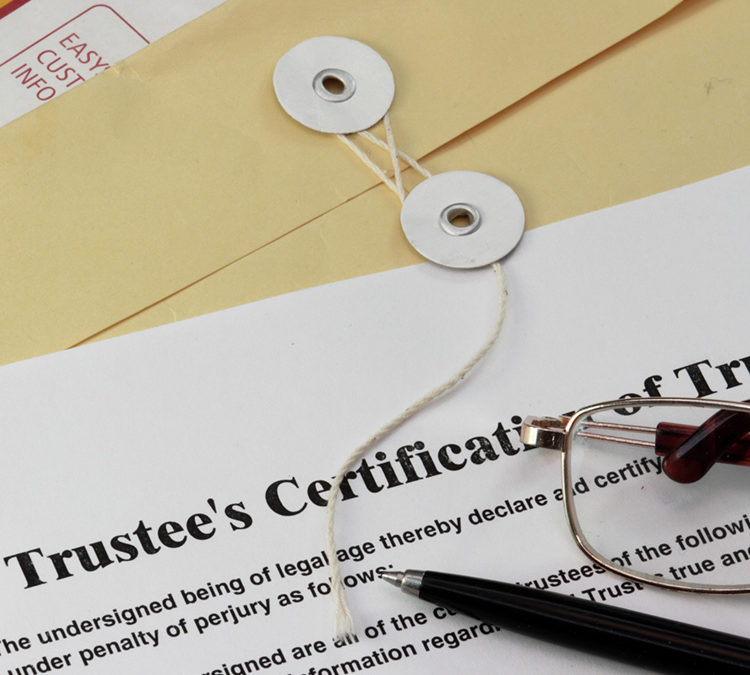Know your responsibilities and potential liabilities.
An individual might be named trustee on a trust for numerous reasons, but regardless as to why, it’s important to consider what responsibilities and potential liabilities can be involved. As a trustee, you will serve as the fiduciary and will hold the legal title of an asset or group of assets for another person, who is known as the beneficiary. A trustee is in place to follow the provisions outlined in a trust agreement, at times putting aside personal feelings to carry out the intent of the guidelines.
What are the basic responsibilities of a trustee?
A trustee functions as the legal owner of assets in a trust. As a trustee, it is vital to thoroughly understand the terms of the trust under your administration. This includes knowing who the beneficiaries are and that assets are safely under your control. You may have to make decisions regarding investing assets, dispersing payments to beneficiaries or properly filing taxes. You’ll also keep accurate records of account statements, tax reports and communications.
Could there be personal liability for not following the trust properly?
Emotions can run high when dealing with an estate or trust. Even if you are not compensated in any way for serving in the role of trustee, you are held to a personal level of accountability. The potential for lawsuits brought on by frustrated beneficiaries or family members could leave you facing significant financial repercussions. As a penalty for mismanaging a trust, you could be required to pay for the resulting damage.
Once you’ve assumed the position as trustee, that responsibility remains yours. Even if you choose to resign at some point, you will continue to be liable until a new trustee accepts the position and all required paperwork is completed.
There are some things you can do to help protect yourself from any future issues arising from your role.
1. Administer the trust according to its terms. It is not in your interest to stray from what is written. Even if you disagree or believe that improvements can be made, your job is to execute the guidelines of the trust as they are written.
2. Keep careful records. Document everything you do and maintain open communication with beneficiaries. Highly-organized documentation of all transactions, statements and records will help you to provide answers to any questions as they may arise.
3. Hire Competent Professionals. It is your job to act prudently and wisely. Trust assets may benefit from professional investment management. Trust tax returns are different from individual returns and a qualified tax preparer or CPA should probably be hired as well.
Expert Guidance
While many individuals are comfortable with the responsibilities required of serving as a trustee, even the most capable person may have questions concerning the trust. It’s an excellent idea to consult with legal counsel or a professional financial advisor who is experienced in estate planning and trust administration should any concerns arise. Professionals, such as the advisors at Frisch Financial Group, can help you to interpret the specifics of the trust and offer guidance as to your duties and obligations. Just as someone has carefully selected to appoint you trustee, so should you thoroughly understand what is required of you and seek the appropriate support as needed. If we may be of assistance, please contact us.


